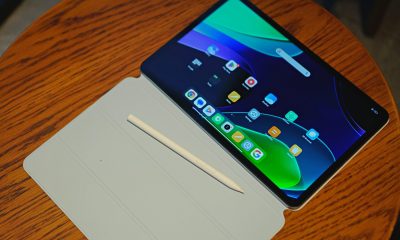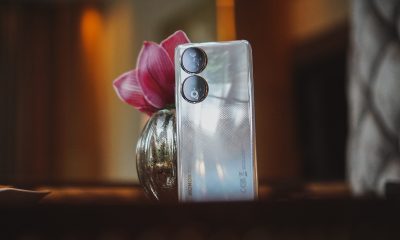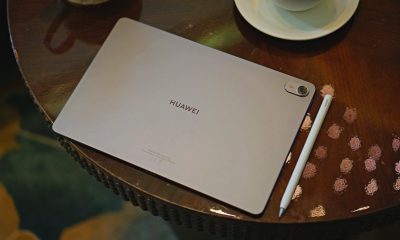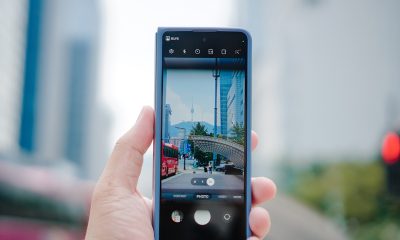India
India finally approves 5G trials, sidelines Chinese vendors
Jio will also test its indigenous technology

The Indian government has allowed India’s top three telecom operators Jio, Airtel, and Vodafone-Idea to carry out 5G trials in India for six months. The telcos are barred from utilizing equipment from Chinese vendors.
The Department of Telecommunication (DoT) said that the telcos can rely on technology providers like South Korea’s Samsung, Swedish Ericsson, and Finnish Nokia. It also said that Jio was allowed to use its indigenous technology to carry out the trials. Huawei and ZTE are the two major Chinese companies that are affected by the clause.
For now, the mid-band (3.2Ghz to 3.67Ghz) and millimeter-wave band (24.25Ghz to 28.50Ghz) are available. Additionally, telcos are allowed to use their existing spectrum. The companies have been warned that commercial utilization is prohibited. The tests are divided between urban and rural India, and the security of the network is of utmost importance.
“The objectives of conducting 5G trials include testing 5G spectrum propagation characteristics especially in the Indian context; model tuning and evaluation of chosen equipment and vendors; testing of indigenous technology; testing of applications (such as tele-medicine, tele-education, augmented/ virtual reality, drone-based agricultural monitoring, etc.); and to test 5G phones and devices,” the ministry said.
No to China
The exclusion of Chinese vendors isn’t surprising as the government has maintained an anti-China stance since the mid of 2020. Due to escalating border crisis, more than a hundred Chinese apps including TikTok and PUBG: Mobile were banned. Since then, state-owned telecom operator BSNL is barred from sourcing Chinese equipment in its network. Private operators have followed a similar strategy to avoid heat from the government.
5G roll-out has been delayed in the country due to the ravaging Coronavirus pandemic and lack of demand for a premium market. The average revenue per user in India lowest in the world, making it difficult for companies to sustain amid decade-long tax disputes, discount wars, and expensive spectrum. However, the industry has picked up pace in the last year as the demand for wireless connectivity boomed, providing a much-needed buffer to beleaguered telcos like Vodafone-Idea.


There’s no doubt that India is a major market for technology. While the country has its own brand preferences outside of the world’s usual, everyone still wants to get a piece of the market. To the dismay of global companies, the country is realizing the potential of its own market. Effective immediately, India has started restricting imports for new laptops, tablets, and PCs.
Recently, India made some headlines in the smartphone industry. A few companies, including Apple, have poured funds into building factories in India. Locally produced devices will allow these companies to attract the Indian market better. With the new regulations out today, it looks like these brands are going to enjoy a head start over others who aren’t in the country yet.
The Indian government introduced a new restriction (via Reuters) against the importation of “laptops, tablets, all-in-one personal computers, and ultra-small form factor computers and servers” made from other countries. Customers, however, will get an exemption. Airline passengers can still bring in these devices in their luggage. Additionally, a single imported device is allowable when bought through e-commerce platforms. Companies can import their products only by applying for a special license.
In a nutshell, bulk orders without a license are out. The government is instead encouraging users to buy locally produced products as part of its “Make in India” program. At the very least, it’s not a total ban on foreign brands. For example, Dell, HP, and Lenovo are exempt from the regulations since they already have production facilities built in the country.
SEE ALSO: Samsung overtakes Xiaomi as top phone brand in India

Attacking a huge smartphone market is difficult. With preferences constantly evolving, it can get tricky to figure out the best lineup to capture most of a market. Samsung, however, has just done it. In the last quarter of 2022, Samsung has taken the crown from Xiaomi as the bestselling smartphone brand in India.
India is an important market for most smartphone brands. It’s one of the largest markets in the world. However, despite its size, the biggest players are often those who offer more affordable devices for consumers. Budget is the name of the game if a brand wants to make it big in the country.
Things are changing, though. According to new market data (via Reuters), Samsung has nabbed the throne from the former leader, Xiaomi. In the last quarter of 2022, the Korean brand grabbed 20 percent of the market, while the latter only got 18 percent.
In a trend dubbed as premiumization, Indian consumers are reportedly enjoying more disposable income, resulting in more willingness to buy pricier products. Additionally, the report hints that consumers have started equating lower prices with inferior quality.
With the market trending towards more premium products, Samsung took the lead with a lineup that consists more of midrange to premium devices. It will also be interesting to see if Apple, an even more premium brand, can also make a dent in the Indian market.
SEE ALSO: Buyer’s Guide: Samsung Galaxy S23 Ultra

For one of the largest smartphone markets in the world, India is one of the rarer countries where Apple does not outright dominate. Undoubtedly, the company is trying to change that. Ongoing job listings in India are suggesting that Apple is ready to open its first brick-and-mortar store in the country.
First reported by Financial Times, Apple has posted job openings in India for several retail roles including for the iconic Genius Bar. Another clue even indicates that some spots have already been filled ahead of time. A few employees in the country have reportedly posted about their new jobs on LinkedIn.
Unfortunately, none of the job listings show how many stores are planned and where they will be. Narrowing things down by a bit, a few of the confirmed employees are from Mumbai and New Delhi. The report also does not indicate when the stores will open. However, since a few have already been hired, a grand opening might be coming soon.
Apple has a lot to gain by strengthening its foothold in India. The country is an important stronghold for smartphone companies. However, the company might find things harder as time goes by. The country recently dictated that brands must switch to USB-C if they want to sell their devices in India. All over the world, Apple remains the last stalwart against adopting the more universal standard.
-

 Reviews2 weeks ago
Reviews2 weeks agoThe Xiaomi Pad 6 is great for the editor on-the-go
-

 Reviews2 weeks ago
Reviews2 weeks agoHONOR 90 review: Simply bedazzling
-

 Gaming2 weeks ago
Gaming2 weeks agoRefurbished Steam Decks are now available through Valve
-

 Health2 weeks ago
Health2 weeks agoRedmi Watch 3 Active: Basic but better
-

 Gaming2 weeks ago
Gaming2 weeks agoRockstar officially partners with Grand Theft Auto V roleplay servers
-

 Gaming2 weeks ago
Gaming2 weeks agoPlayStation 5 Slim supposedly leaked online
-

 Entertainment2 weeks ago
Entertainment2 weeks agoCatch Cinemalaya 2023 films at Ayala Malls this weekend
-

 Apps2 weeks ago
Apps2 weeks agoSpotify DJ feature now available in the Philippines



















